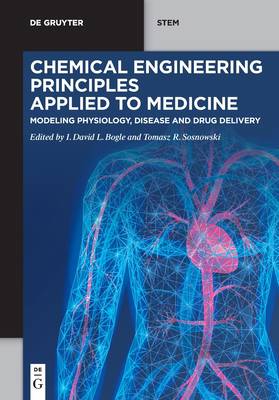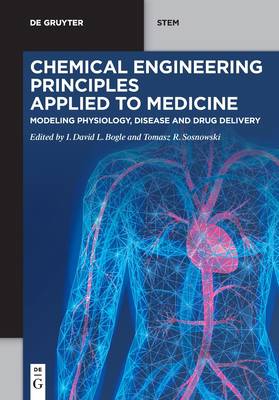
Bedankt voor het vertrouwen het afgelopen jaar! Om jou te bedanken bieden we GRATIS verzending (in België) aan op alles gedurende de hele maand januari.
- Afhalen na 1 uur in een winkel met voorraad
- In januari gratis thuislevering in België
- Ruim aanbod met 7 miljoen producten
Bedankt voor het vertrouwen het afgelopen jaar! Om jou te bedanken bieden we GRATIS verzending (in België) aan op alles gedurende de hele maand januari.
- Afhalen na 1 uur in een winkel met voorraad
- In januari gratis thuislevering in België
- Ruim aanbod met 7 miljoen producten
Zoeken
Chemical Engineering Principles Applied to Medicine
Modeling Physiology, Disease and Drug Delivery
€ 177,45
+ 354 punten
Omschrijving
Chemical Engineers are increasingly working on medical problems but so far there is no text that brings together such contributions for inspiring more research and as the basis for advanced courses. This work provides contributions on how Chemical Engineering approaches medical problems, particularly using modelling alongside experimentation and data analysis, to explore medical behaviors. Chapters on modelling the liver, kidney, lungs and skin and associated systems to show how major changes in behavior can be understood and to some extent predicted, are included. This is followed by chapters explaining how engineering principles have been developed to aid diagnosis and treatment of disease such as cancer, diabetes, Von Willibrands disease, and conditions associated with the lungs. The book is of relevance to all Chemical Engineers showing how the discipline is extending to tackle the chemical and physical aspects of disease and human physiology and will also be of interest to clinical staff who wish to see how engineering methodologies can help to integrate the fragmented landscape of medical specialties and in the future move towards decision support tools based on understanding of physiology and disease to aid clinical decision making in the way that is now done in manufacturing. Brings together Chemical Engineers with medical experts. Inspires young Chemical Engineers to see how and where and how their skill set can be applied to medical problems. Within the EFCE Forum on New Technologies Chemical Engineering as Applied in Medicine was seen as an inspiring new area of research.
Specificaties
Betrokkenen
- Uitgeverij:
Inhoud
- Aantal bladzijden:
- 408
- Taal:
- Engels
- Reeks:
Eigenschappen
- Productcode (EAN):
- 9783111394541
- Verschijningsdatum:
- 30/09/2025
- Uitvoering:
- Paperback
- Formaat:
- Trade paperback (VS)
- Afmetingen:
- 170 mm x 244 mm
- Gewicht:
- 648 g

Alleen bij Standaard Boekhandel
+ 354 punten op je klantenkaart van Standaard Boekhandel
Beoordelingen
We publiceren alleen reviews die voldoen aan de voorwaarden voor reviews. Bekijk onze voorwaarden voor reviews.








